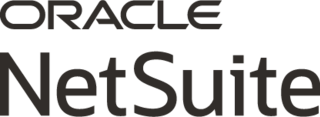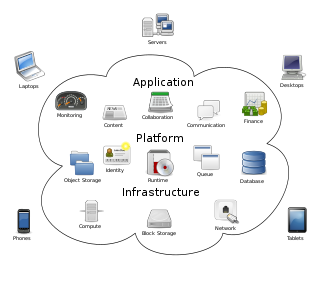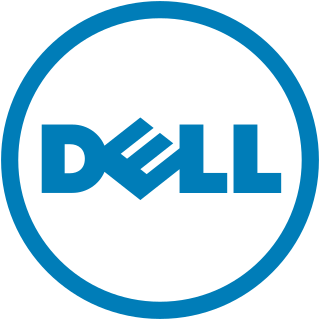Customer relationship management (CRM) is a process in which a business or another organization administers its interactions with customers, typically using data analysis to study large amounts of information.
Oracle Corporation is an American multinational computer technology company headquartered in Austin, Texas. Co-founded in 1977 by Larry Ellison, who remains executive chairman, Oracle ranked as the third-largest software company in the world by revenue and market capitalization as of 2020, and the company's seat in Forbes Global 2000 was 80 in 2023.
PeopleSoft, Inc. was a company that provided human resource management systems (HRMS), financial management solutions (FMS), supply chain management (SCM), customer relationship management (CRM), and enterprise performance management (EPM) software, as well as software for manufacturing, and student administration to large corporations, governments, and organizations. It existed as an independent corporation until its acquisition by Oracle Corporation in 2005. The PeopleSoft name and product line are now marketed by Oracle.
Enterprise content management (ECM) extends the concept of content management by adding a timeline for each content item and, possibly, enforcing processes for its creation, approval, and distribution. Systems using ECM generally provide a secure repository for managed items, analog or digital. They also include one methods for importing content to manage new items, and several presentation methods to make items available for use. Although ECM content may be protected by digital rights management (DRM), it is not required. ECM is distinguished from general content management by its cognizance of the processes and procedures of the enterprise for which it is created.
Information technology controls are specific activities performed by persons or systems to ensure that computer systems operate in a way that minimises risk. They are a subset of an organisation's internal control. IT control objectives typically relate to assuring the confidentiality, integrity, and availability of data and the overall management of the IT function. IT controls are often described in two categories: IT general controls (ITGC) and IT application controls. ITGC includes controls over the hardware, system software, operational processes, access to programs and data, program development and program changes. IT application controls refer to controls to ensure the integrity of the information processed by the IT environment. Information technology controls have been given increased prominence in corporations listed in the United States by the Sarbanes-Oxley Act. The COBIT Framework is a widely used framework promulgated by the IT Governance Institute, which defines a variety of ITGC and application control objectives and recommended evaluation approaches.
Oracle Applications comprise the applications software or business software of the Oracle Corporation both in the cloud and on-premises. The term refers to the non-database and non-middleware parts. The suite of applications includes enterprise resource planning, enterprise performance management, supply chain & manufacturing, human capital management, and advertising and customer experience.
Enterprise feedback management (EFM) is a system of processes and software that enables organizations to centrally manage deployment of surveys while dispersing authoring and analysis throughout an organization. EFM systems typically provide different roles and permission levels for different types of users, such as novice survey authors, professional survey authors, survey reporters and translators. EFM can help an organization establish a dialogue with employees, partners, and customers regarding key issues and concerns and potentially make customer-specific real time interventions. EFM consists of data collection, analysis and reporting.
Oracle Fusion Middleware consists of several software products from Oracle Corporation. FMW spans multiple services, including Java EE and developer tools, integration services, business intelligence, collaboration, and content management. FMW depends on open standards such as BPEL, SOAP, XML and JMS.

NetSuite Inc. is an American cloud-based enterprise software company that provides products and services tailored for small and medium-sized businesses (SMBs) including accounting and financial management, customer relationship management (CRM), inventory management, human capital management, payroll, procurement, project management and e-commerce software. NetSuite was founded in 1998 with headquarters in Austin, Texas. The company is widely seen as the first cloud computing software company, with its founding pre-dating that of Salesforce by about a month.
Nirvanix is an American-based provider of business phone systems, VoIP services, hosted PBX, SIP Trunks, and cloud storage services headquartered in San Diego, California, United States. The company offers a variety of business phone solutions for small, medium as well as enterprise businesses. It also has a strong presence in public, hybrid and private cloud storage services with usage-based pricing. Based on previous service companies founded in 1998, Nirvanix shut down in October 2013. In July 2021 Nirvanix re-entered the business with $12 million funding.

Oracle Warehouse Builder (OWB) is an ETL tool produced by Oracle that offers a graphical environment to build, manage and maintain data integration processes in business intelligence systems.

Cloud computing is "a paradigm for enabling network access to a scalable and elastic pool of shareable physical or virtual resources with self-service provisioning and administration on-demand," according to ISO.
Network intelligence (NI) is a technology that builds on the concepts and capabilities of deep packet inspection (DPI), packet capture and business intelligence (BI). It examines, in real time, IP data packets that cross communications networks by identifying the protocols used and extracting packet content and metadata for rapid analysis of data relationships and communications patterns. Also, sometimes referred to as Network Acceleration or piracy.

Linoma Software was a developer of secure managed file transfer and IBM i software solutions. The company was acquired by HelpSystems in June 2016. Mid-sized companies, large enterprises and government entities use Linoma's software products to protect sensitive data and comply with data security regulations such as PCI DSS, HIPAA/HITECH, SOX, GLBA and state privacy laws. Linoma's software runs on a variety of platforms including Windows, Linux, UNIX, IBM i, AIX, Solaris, HP-UX and Mac OS X.
Perspecsys Inc. is a cloud computing security company Founded by Terry and Lynda Woloszyn, on July 6 2006 that provides cloud data protection software. Perspecsys has offices in the Toronto area; Tysons Corner, Virginia; San Francisco, California; London, England; Paris, France; and Berlin, Germany.
Oracle Advertising, formerly Datalogix, is an American cloud-based consumer data collection, activation, and measurement platform for use by digital advertisers. Datalogix was a consumer data collection company based in Westminster, Colorado that provided offline consumer spending data to marketers that was aquired by Oracle in 2014.

Dell Software was a former division of Dell with headquarters in Round Rock, Texas, United States. Dell Software was created by merging various acquisitions by Dell Inc., the third-largest maker of PCs and now a privately held company, to build out its software offerings for data center and cloud management, information management, mobile workforce management, security and data protection for organizations of all sizes.

Oracle Cloud is a cloud computing service offered by Oracle Corporation providing servers, storage, network, applications and services through a global network of Oracle Corporation managed data centers. The company allows these services to be provisioned on demand over the Internet.
Oracle Cloud Human Capital Management is a cloud-based HCM software application suite for global HR, talent, and workforce management released by Oracle Corporation in 2011.

Oracle Advertising and Customer Experience (CX) is a suite of cloud-based applications offered by Oracle Corporation that includes tools for advertising, marketing, sales, e-commerce, customer service.






